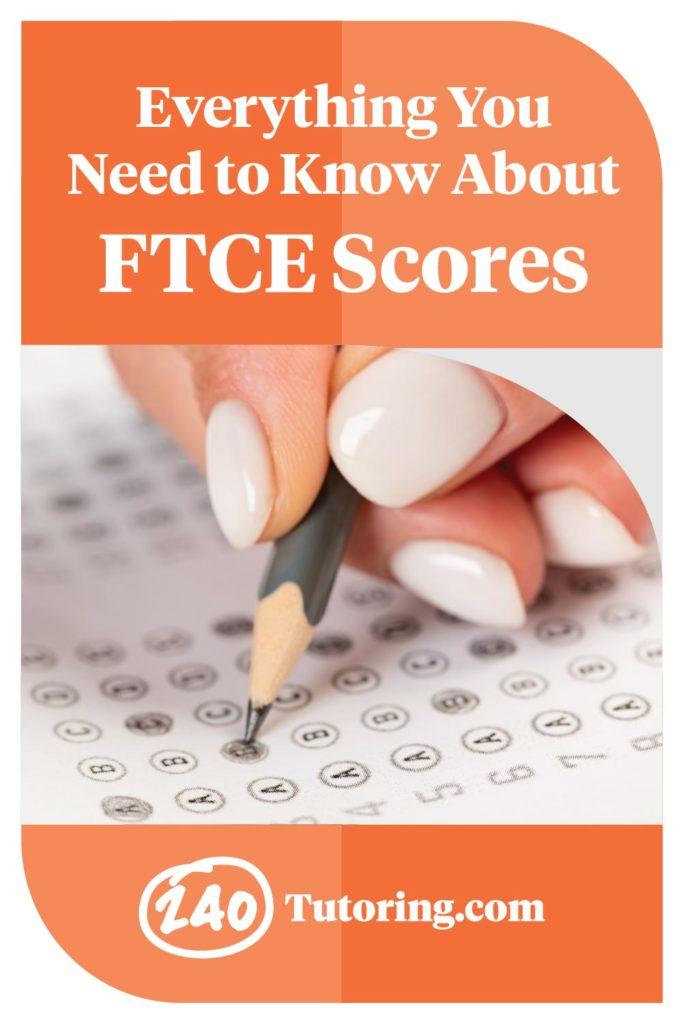Not sure what to study, or if you are going to pass? We can help!
I'm a teacher candidate at a university/college I'd like to transition to teaching I'm a current / former teacher I'm in leadership for K-12 or Higher Ed (EPP)Everything You Need To Know About FTCE Scores

 The Florida Teacher Certification Examinations (FTCE) are designed to evaluate the knowledge and skills of teacher candidates in the state of Florida. While preparing for the FTCE can seem daunting, we’re here to help by providing detailed information on the test and easy-to-use study materials all in one place.
The Florida Teacher Certification Examinations (FTCE) are designed to evaluate the knowledge and skills of teacher candidates in the state of Florida. While preparing for the FTCE can seem daunting, we’re here to help by providing detailed information on the test and easy-to-use study materials all in one place.
Knowing how the FTCE exams are scored, the score you need to pass, and how to interpret your score report can help reduce your anxiety before test day.
Are you ready to get started? Let’s go! At 240 Tutoring, we are here to answer all of your questions about FTCE scores.
How Are the FTCE Exams Scored?
FTCE exams are scored by converting a raw score to a scaled score. This allows different versions of the same test to be scored in a way that adjusts for varying difficulty levels between exam forms. Completed exams are reported as PASS / NOT PASS, and will only include your numerical scaled score if you do not pass. Maximum scores vary across different exams, ranging from the mid-200 to 400s, which means that scores cannot be compared from one exam to another. A scaled score of 240 on one exam is not the same as a scaled score of 240 on a different subject exam. FTCE exams may include both traditional multiple-choice and written/oral performance components. Performance components are scored holistically by qualified raters. More information on performance scoring — including scoring rubrics, guidelines, and rater qualifications — can be found at the FTCE login on the official FTCE site.
Since different tests have different numbers of questions, the minimum passing percent varies, but it is usually around 70%. Points are not deducted for wrong answers, so it is better to guess than to leave a question blank. A chart of the percent of correct answers needed to pass each exam can be found at the Florida Department of Education (FLOE) website.
How Long Does It Take To Get FTCE Scores?
Within four weeks of taking the test, you should receive an email confirmation that your score report is available online from the FTCE login page. Scores are generally released on Monday nights. Specific score reporting dates for recent and upcoming exams are available on the FTCE website. If your exam only included multiple choice questions, you may receive an unofficial pass/not pass status at the end of your exam. However, this is only for your reference and cannot be used for certification purposes.
What Score Do You Need to Pass the FTCE Test?
You need a scaled score of 200 to pass all multiple-choice tests. The essay section for General Knowledge (GK) exam requires at least 8 out of 12 possible points. Additional scoring details for exams with performance sections can be found on FTCE’s website.
How Long Do You Have to Wait Before You Can Retake an FTCE Exam?
The waiting period to retake an FTCE exam is 31 days after the test date for a failed exam. If you want to retake an exam that you passed, you’ll need to wait at least three years. All retake attempts are subject to new registration and fees.
How Do You Interpret an FTCE Score Report?
Score reports for passed exams show only the passing status and performance information (if applicable) to prevent a numeric score being used in hiring or other merit systems.
Score reports for exams that have not been passed will show NOT PASS and a numeric score. If you did not pass, your score report will also have a detailed performance analysis report that provides information on the number of correctly answered questions in each competency. Use this information to prepare and study for retaking the test after the waiting period.
Sample Spanish K-12 Score Report with Detailed Performance Analysis
How Hard Is It to Pass an FTCE Exam?
In 2019 more than half of test-takers passed their exam on the first try. Pass rates for individual subjects can be found starting on page 30 of this document published by the Florida Department of Education website. The best way to succeed on your FTCE exam is by making a study plan and sticking to it. 240 Tutoring provides easy-to-use and engaging study content for FTCE exams, giving you access to diagnostic tests, test-specific information, and practice problems all in one place.

